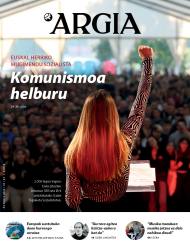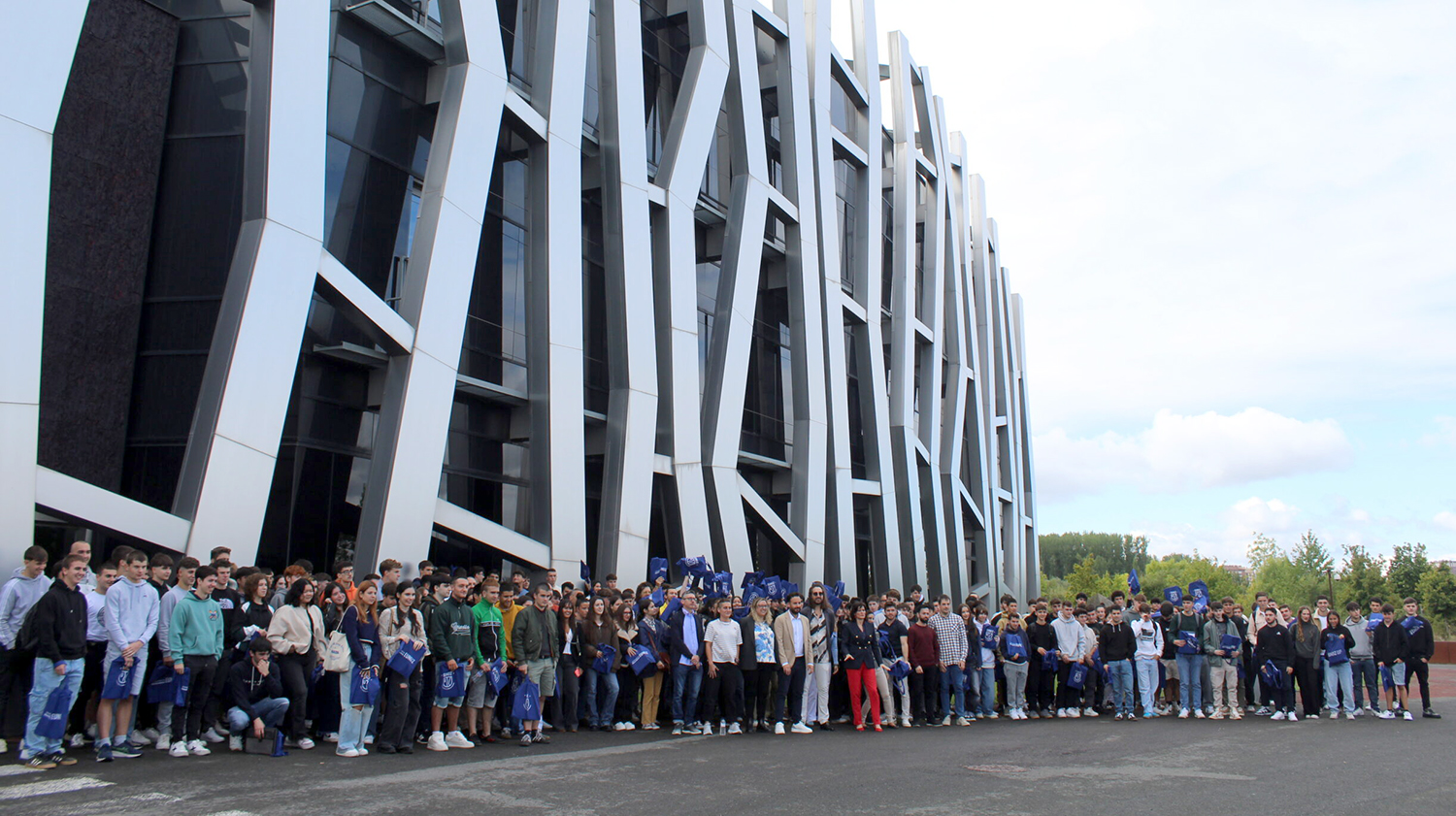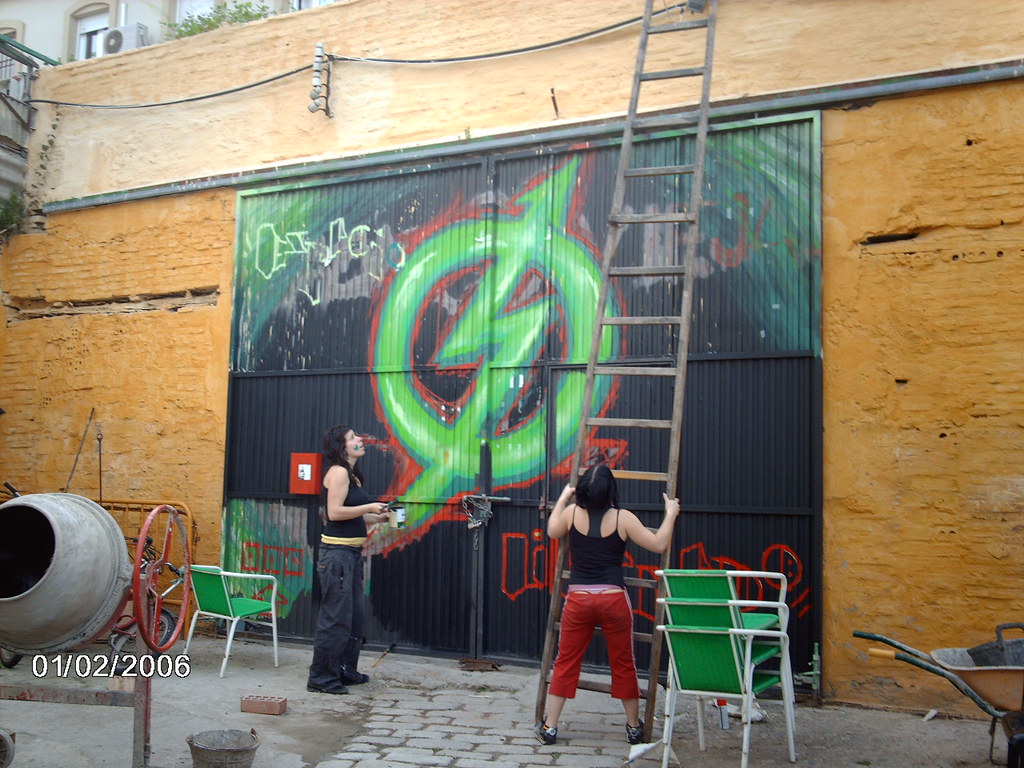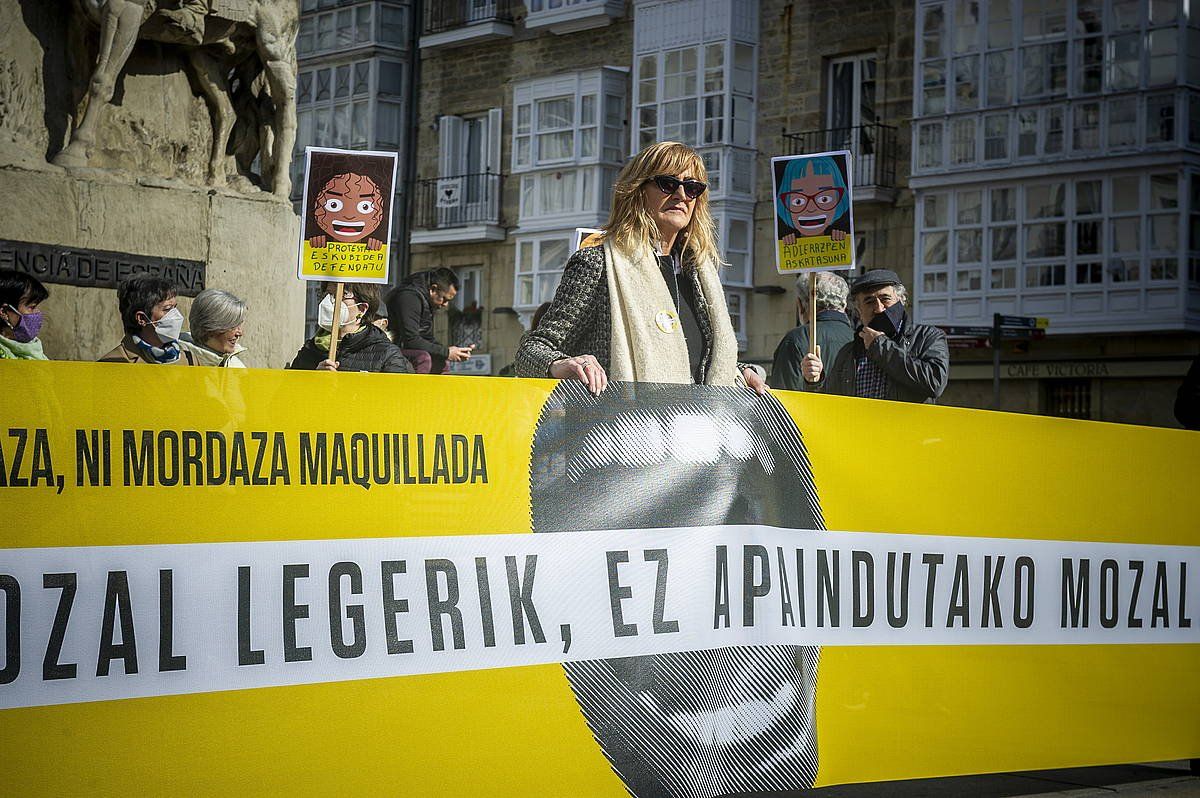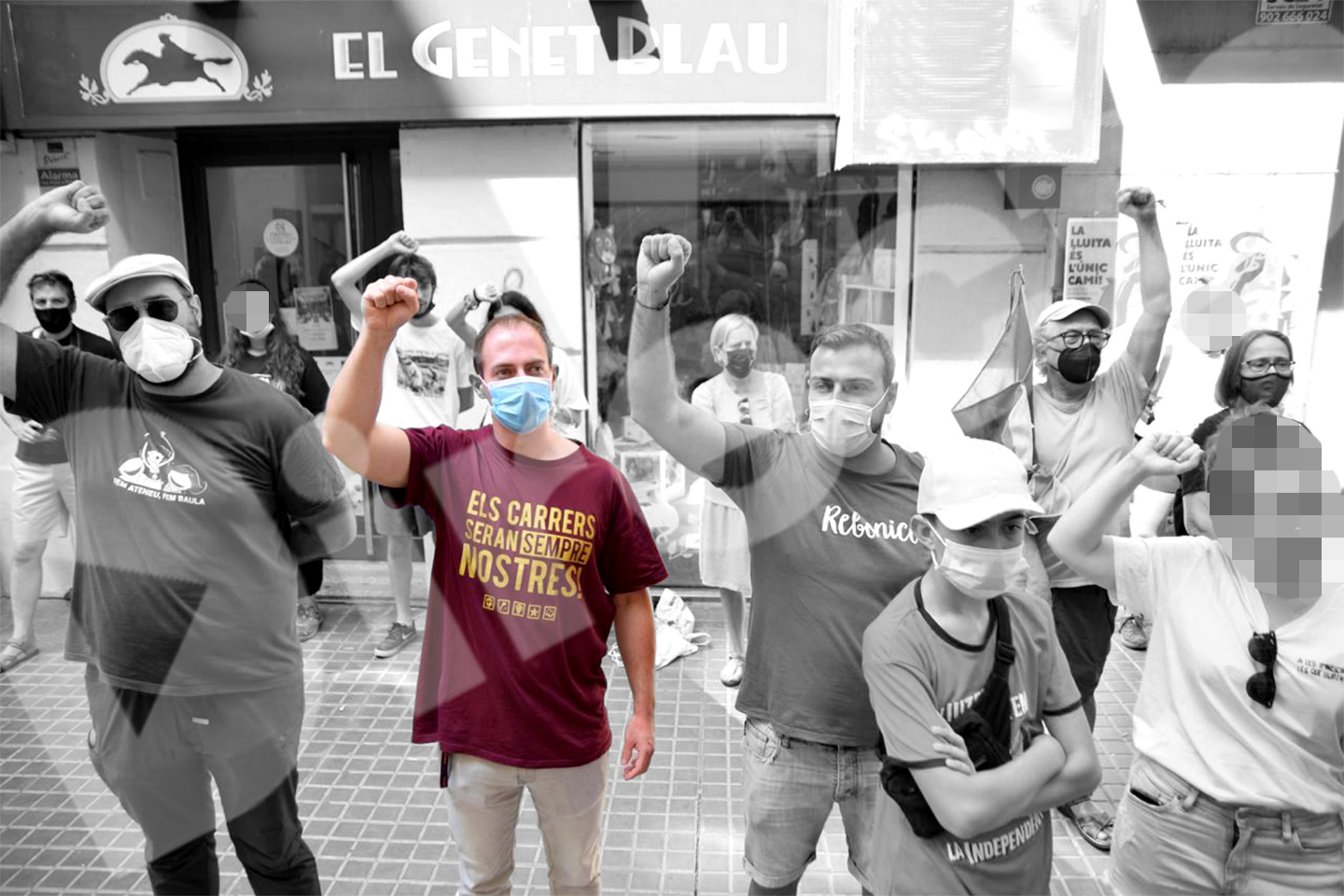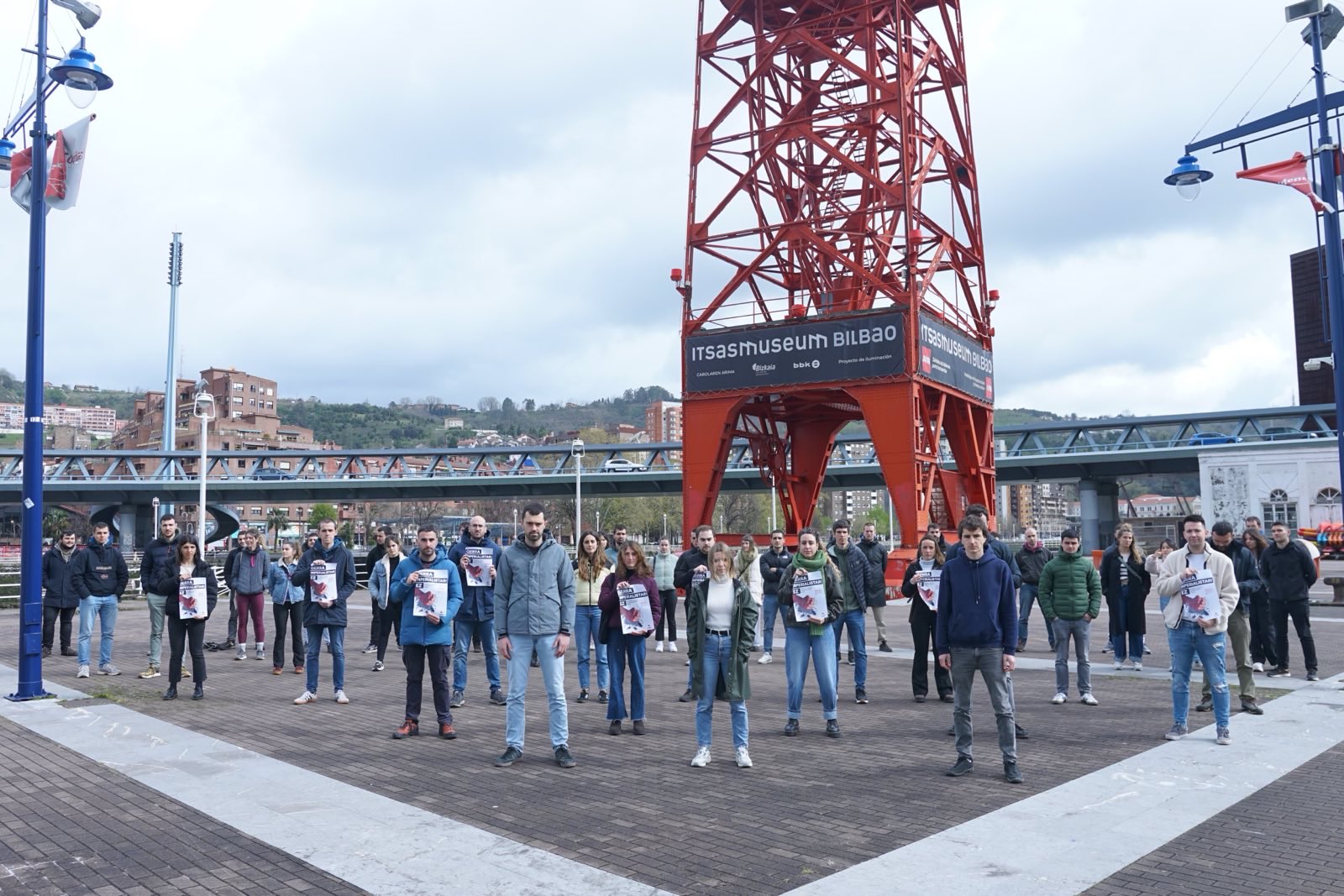Towards Communism
- He is very young, just out of the cradle, but his ideological roots are deeply rooted in the past and the Socialist Movement of Euskal Herria looks to the future with firmness and security. Right? Time will tell, but it will not be a joke destination: following the trail of the long and complicated tradition of the left on a global level, he wants to build a communism in the Basque Country and in the world, because they believe that if it is not in the world, it will not be in the Basque Country either.

The Young Socialist Coordinator (GKS) is the most powerful institution of the Socialist Movement, it was created in 2019 and its texts, both of the previous and the previous ones, seemed a lot like the red literature of the older brothers who read at home in the early 1980s, like Marta Harnecker. The question fell by itself, but could it happen by pulling away from the failed tradition of the century, so similar that then, to arrive somewhere in the 21st century? The initial ideas were of this kind to yourself. Instead, thinking cold, you can conclude that doing that thinking is as difficult as it is today, and these ideas are today one of the strengths of the members of the movement. The evolution of current capitalism, the political situation after the armed struggle in Euskal Herria, and the importance they have given to the ideological struggle in recent years, will have something to do with the materialization of the movement.
In the first step, one may think that the acronym generated after the paradigm shift of the Socialist Movement's Left Abertzale in 2011 is another in the back of the Chaparron. And that is also, but, once approximated, it also shows some signs that can be observed with attention and respect: although the discourse they use seems obsolete, one perceives a cultivated ideological body that looks to the future; a solid organization; a great job and a firm disposition to fight for their project; and, although it is not yet quantitatively strong as a socio-political group, it has demonstrated in its environment the ability to join a set of radical disagreements.
.jpg)
It is something new of old odor, at least what we have not seen in the Basque policy of the last decades, which develops a visibilizing, liberating or utopian vision that is intended to move from the ashes of Communism of the twentieth century XXI.ean, according to the glasses observed. And we've gotten closer, we've become more familiar and explained better. To perform the report we went to the website Gedar, the magazine Gedar Telebista and the magazine Arteka, in the modern Pravidas of the movement. We have also spoken with the Azpeitiarra Beñat Aldalur of the Socialist Movement. It is evident that they attach great importance to communication, that they want to socialize their truth in their own way, like the rest of the political currents of society, and the truth is that, from the experience of this journalist, it also seems contradictory, because getting to talk to them has been a task that has cost a lot.
The end of ETA in 2011,
when ETA announced the end of the armed struggle, began to launch the first sparks of these current flames. The tensions that this process generated on the left are known Abertzale. The new ENAM timers changed course, but not all the discrepancies were left behind. From the following years to the present, numerous groups and small currents have developed: The Movement for Amnesty and Anti-Repression, on the Path of Freedom, which disappeared, Jarki, Act, Citizen Union, Fuelle, Acción Vasca (ANV-EAE)... and the salsa of acronyms and names of the Socialist Movement.
They come from the sociological areas of ENAM and are aimed at the Basque Socialist State, but they want to make it clear that they have broken it with the Basque Left.
It's High Combat! The blog was the most significant speaker of the Abertzale left dissent. The blog brought together numerous texts and reflections from members of the current Socialist Movement. The first roots of the tree grew in the debates and the student movement of that blog. With the organization’s control by Ikasle Abertzaleak (IA), the two large youth lines on the Abertzale left collided, and in 2018 Ernai announced that he would break ties with AI and that he would work on his own in education, then creating the Ikama.
According to Beñat Aldalur, they also necessarily come from this broad sociological framework of the Abertzale left, and recognizes that the expansion of the Socialist Movement is still limited: “Through ideological work, so far we have been able to reach the areas of university sociology, we have brought together people with political and intellectual concerns, but we have not yet reached the proletariat, in a general sense, and that task is being done little by little. That’s our challenge.”
.jpg)
Breaking with ENAM
come from the sociological sphere of the Basque National Liberation Movement (ENAM) and are aimed at the Basque Socialist State, but they want to make it clear that it has been broken with the Abertzale left and that they have nothing to do with other smaller groups that want to follow their historical tradition. In last November's Fissure, the development of the fracture was explained aloud through a detailed analysis of the "historical failure of ENAM". Final of the Draw signed by Gedar: The State's final offensive report analyzes the movements of the Abertzale Left between 2007 and 2011. Also, analyzing the political situation, Aitor Martínez addresses the consequences of the historic failure of the Abertzale Left:
“What has come down in these decades has not been a passion and a revolutionary will. What has disappeared has been a revolutionary figure without revolutionary programs, that is, a context that allowed it to appear as revolutionary social democracy. To this has been called the crisis of bourgeois politics post-capitalist crisis, which appears more raw in the flesh of social democracy. (...) We have the same challenge, the same one that the proletariat has had in recent decades. The starting point is the same: we have failed, communism has been systematically excluded within the Abertzale Left. Now we are faced with a new principle, but this time it is not just an ethical position”.
The Socialist Councils involve militants of all ages, especially young people, in the activities of the institutions of the Socialist Movement.
Three young people of the movement in the same magazine delve into this rupture with the “official Abertzale Left”, emphasizing, among other things, the transition from disenchantment to political construction. Aingeru Otxotorena, Dorleta Agiriano and Isaak started in Ziaurriz Ernain and IA and speak very critically of the line drawn by the Abertzale Left in the last decade. “It was becoming increasingly apparent that ‘officialism’ is committed to integrating into the State and trying to influence from bourgeois institutions and legalities (...) that it seemed that we could no longer believe in the revolution,” says Agiriano. Otxotorena stresses that discrepancies could be seen in different areas: “Models of mobilization, absolute obedience to Sortu, overweight of parliamentary struggle, interclassism, amnesty...”
Although the development of ideas is longer, Beñat Aldalur talks about several points that would explain the failure of ENAM. “As for time, there is the decline in the national liberation movements that accompanied the end of the Soviet Union. On the basis of space, many of these processes were successful, but in the underdeveloped countries, on the periphery. We have also been critical of ENAM’s inter-classism, because that alliance imposed the small bourgeoisie and not the working class. Also with the passage of evolutionism, that is, first independence and then socialism. In our opinion, the national and social issues are not two different processes, they must be part of the socialist program, and in addition, understanding this process in an internationalist sense, it must be part of a broader process.” In Europe, however, something is true, but it recognises that they are not yet closely related to other Communist agents in the world.
.jpg)
And in this historical review, it specifies that other hypotheses are being worked out: “For example, ETA’s strategy was maintained because nationality was strong. If this struggle has been maintained, it was because of the adhesion generated by the armed combat itself, not because of its strategic invention; ENAM had its own ability to reproduce. However, ENAM was not able to achieve a comprehensive revolutionary process. We have to look at why he was not yet able to reach more people, to create a different model of power.”
Arteka’s comprehensive report, mentioned above, ends as follows: “From respect for the militants and the emancipating project who have offered a selfless life in favor of the Basque People without class, criticism and discipline are ethical obligations of the communist militant of the twenty-first century. That the identification of the errors and contributions of the previous ones serve to bring us closer to the temporal horizon that unites us”.
The failure of the communist
project Why did the 20th century communist project fail? Aldalur poses a number of factors as a general criticism: “One cannot think that it failed only for the hegemony of EE.UU, but also for internal reasons. For example, in some historic moments – XIX. Although at the end of the century XX.eko it was possible to equate the working class with socialism (today no proletarianism or socialism is identified), the processes should be fundamentally political insofar as they failed to consolidate the economic construction of socialism. In other words, the State apparatus was taken, but the whole transformation of the social model was not refined. There was no clear theory to understand socialism as a process. You take the state and then they juggle to keep it. Then the state eats you. Consequently, over time, there are processes of bureaucratization, separation between the non-elites and return to capitalism. We now see clearly that political and economic processes have to go together, for example in order to overcome the wage logic. A socialist process must overcome wage discipline and look beyond.
The concept of the movement has created problems in different areas, especially in the world of occupation, and several voices accuse them of breaking the plurality of cheese shops.
But as Antonio Gramsci said at the time, in addition to the State, there is the issue of cultural hegemony, which for the Socialist Movement is a key area. In other words, as Aldalur explains, “within the proletarianisation, which is an absolutely dominant capitalist ideology, one must think – and Gramsci provides tools for this – what keys and areas to play, and how to culturally take advantage of the processes of struggle. Giving a cultural war on life prospects is therefore a priority for us.” And yet – says who is one of the ideologues of this socialist movement and signs as Kolitza in Arteka –, even right in these cultural processes, it will always be necessary “the decisive factor affecting bourgeois social formation: the cumulative crisis of capitalism, which today represents an unstoppable loss in the quality of life of the Western working masses”.
Organizational framework of the socialist
movement At some historic moment the proletariat must compete with the bourgeois state through the Communist Party, but in the meantime it is up to the institutions of the Socialist Movement to create the conditions for this. It is not a matter of creating a Communist party in the party register and it is already there, the Communist Party will be created when conditions exist for this. It is therefore up to the Socialist Movement to influence society and in the last two years it has created a number of instruments for this purpose.
.jpg)
The youth SGS is the best known and active, but there are also others:Itaia in the world of socialist women’s organization, culture and art Ekida, gaztetxe and occupation Erraki, Ikasle Abertzaleak in education and Gedar, Gedar Telebista and monthly magazine Arteka in media. The slot is published in Basque and Spanish and Gedar.eus is made in Basque. This is also curious, in the media where little can be read about the Basque nation or identity, the Basque language is the majority language. Aldalur speaks of the theme naturally: “Language is a tool for us, so far we mainly use the Basque language, but depending on the territory – if it is a Castilian or Spanish language – we will use Spanish or French, together with the Basque language. In Communism, languages, such as the Basque language, will be the heritage of humanity, not only of our own, and in this context all the languages of the world will be developed”.
Now, the Socialist Council is also
creating the most important and central instrument of the current situation, in order to coordinate and stimulate all those mentioned so far: The Socialist Council. The “Party Cells with Unlimited Growth”, according to Kolitza, would be the precise tools to guide the proletarian revolution in the territories and sectors.
These councils, like the Soviets, will work on the construction of communism, in other words, in an article by Kolitza of January 2021, “a historic programme of a universal society without class, in which political freedom, well-being and wealth are the heritage of all mankind (...) In short, – says Kolitza, and it should be read carefully – the councils are the administrative cells of the most proletarian democracy.
Aldalur tells us that in half of the counties of Euskal Herria there are already Socialist Councils, but they would also like to address issues such as "the issue of socialist spaces and housing, the fight for political freedoms and against repression, the question of employment and the framework of basic living conditions". Indeed, the councils involve militants of all ages, especially young people, in the activities of the institutions of the Socialist Movement. It is intended to be a movement of the whole of Euskal Herria and the Socialist Council that was created in Ipar Euskal Herria last October. In the Urola Medio de Gipuzkoa and Goierri, and in the Region of Pamplona, Navarra, they have been one of the strongest councils of all time.
Allies and conflicts Urruti
is the new society, communism, and to achieve that it has to revolutionize the proletariat, that is, for the time being the Socialist Movement. Do you need an alliance for it? The issue is not easy. For them in the revolutionary process, two fundamental aspects are at stake: the proletariat and the bourgeoisie, and therefore, in the areas in which they participate, they will fight for improvements in them, but whenever they serve to fuel the course of the socialist revolution. They stress that this whole process must be done from proletarian independence, and other leftist sensibilities remind them that the Socialist Movement itself is also one more political actor.
This concept has created problems in different areas, especially in the world of occupation, and several voices accuse them that they are breaking the plurality of cheese shops. On social networks are known the strict polemics between militants and Erraki of the queserías that refer to this conflict. One of them is the one granted in the occupied house Arkillos de Vitoria-Gasteiz: “In short, for 10 years, a house that has been very diverse from neighbors and collectives, has spent 4 days being a house that has joined Erraki. By imposing most of a given moment, not by consensus. We see the different values of self-management, assembly and neighborhood work,” two of the six neighbors wrote. Response of Raqui's picosos: “The objective of the opinion article that has been launched is clear: to strike at all costs a political movement, the instruments that it generates and the militants of it. In recent days we have seen eleven cases that confirm this intention.”
It is time, according to the GGS, to turn a blind eye to all those who verbally defend the interests of the working class, but who are part of the Party of the Bourgeoisie.
Such problems and conflicts have also existed in many gaztetxe and in the occupied Errekaleor district of Vitoria-Gasteiz. “When there is no consensus, we must try to build consensus,” says Aldalur, but if it is not achieved, we must do what the majority wants, if the minority does not decide.” In the citizens’ protests about concrete problems, the Socialist Movement sometimes differs from other joint protests, such as the feminist movement, and in the case of the Machian murders, Itaia has sometimes organised its own actions.
They state that
since 2008 capitalism has been in a serious crisis in the 29 demonstrations and that, therefore, year after year they are seriously affecting the living conditions of the working class. They also highlight the economic crisis and the political crisis that has accentuated COVID-19, and at the end of the year they have particularly denounced the implementation of the COVID-19 passport. To protest and promote the accumulation of forces, the GSC has called for demonstrations on 29 January in Bilbao and Pamplona to paralyse the dictatorship of the bourgeoisie. under the head. The mobilizations have been characterized by the capitalist crisis and the partisan reflection of Gramsci, with two parties, that of the bourgeoisie and the proletariat. This is what Gedar’s editorial of December 13 says: “It is time, according to the GGS, to turn a blind eye to all those who in the word defend the interests of the working class, but who are part of the Party of the Bourgeoisie.”
The Socialist Gazte Topagune, led by GKS and IA, has been the most massive appearance from 8 to 12 October, bringing together over 1,500 people. The main novelty of this movement so far is not quantitative, but the next 29 will be important to them, and other eyes on the left will continue to pay attention to the number and the next steps.
.jpg)
The writer Juan Bautista Bilbao Batxi worked in a boat and sent the chronicles of his travels to the newspaper Euzkadi. Thanks to this, we have interesting chronicles in Basque from around the world from the beginning of the 20th century. In June 1915, he made his stop in... [+]









